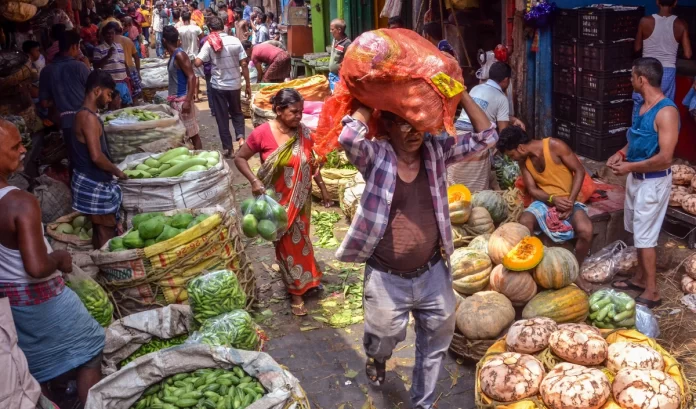YEARS
The Reserve Bank, which kept the key short-term lending rate unchanged earlier this month, has been tasked by the government to ensure that inflation remains at 4 per cent with a margin of 2 per cent on either side.
According to government data, India's retail inflation rate increased from 3.65 percent in August this year to 5.49 percent in September. The main contributors to this rise in inflation may include rising food prices, increased demand and other economic factors that are impacting the cost of living for Indian households. Consumer Price Index based inflation stood at 5.02 percent in September 2023. National Statistics Office data showed that inflation in the food basket rose to 9.24 percent in September from 5.66 percent in August and 6.62 percent in the same month a year ago.
The Reserve Bank, which kept the key short-term lending rate unchanged earlier this month, has been tasked by the government to ensure that inflation remains at 4 per cent with a margin of 2 per cent on either side. Reserve Bank of India (RBI) Governor Shaktikanta Das on Monday advocated reducing the time and cost of remittances, which is important for various developing economies including India.
According to the World Migration Report 2024 released by the International Organization for Migration (IOM), India's remittances surpassed all other countries to $111 billion last year. According to Bank of England estimates, the value of global cross-border payments is expected to exceed $250 trillion by 2027. The significant volume of remittances by workers across the border, the growing size of gross capital flows and the growing importance of cross-border e-commerce have been catalysts for this growth, he said.
other news

